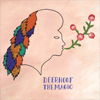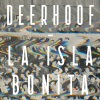
- HOME
- ABOUT
- ARTISTS
A.P.A.T.T. APOSTILLE BAMBOO BARR BERTIE MARSHALL BIRD NAMES BRONTEZ PURNELL BUFFET LUNCH CHESTER ENDERSBY GWAZDA CHOPS CLEAR HISTORY CLECKHUDDERSFAX COLD PUMAS CONSTANT MONGREL DARLENE SHRUGG DEATH SENTENCE: PANDA! DEERHOOF DOG CHOCOLATE DRUM EYES EARTH BALL ED SCHRADER'S MUSIC BEAT ES ESQUILAX FEATURE FOOT VILLAGE FORMER GHOSTS FUTURE ISLANDS GAY AGAINST YOU GARY WAR / PURPLE PILGRIMS GEN POP GENTLE FRIENDLY GOWNS THE GREEN CHILD GUTTERSNIPE HALO HALO HANDLE HANDS ON HEADS HASH REDACTOR HELHESTEN HIGH PLACES HISTORICALLY FUCKED HYGIENE KAPUTT KIT LEOPARD LEG LINDA SMITH / THE SMASHING TIMES LUCKY DRAGONS LUNCH LADY MARCEL WAVE JOHN MAUS ME LOST ME MUNCH MUNCH NAKED ROOMMATE NICFIT NO AGE NO BABIES NORMIL HAWAIIANS NOTS NUMBERS PARSNIP PEEPHOLES PEGA MONSTRO THE PHEROMOANS PHILIP FROBOS PIKACYU-MAKOTO PLEASE PLUG PRIMO! QUINIE RAT COLUMNS RATTLE RAVIOLI ME AWAY RED CHANNEL ROBERT SOTELO ROBERT SOTELO & MARY CURRIE SAUNA YOUTH SCREENSAVER SEASON 2 SHAKE CHAIN SILVER FOX SCHOOL DAMAGE SOFTBOILED EGGIES SOILED MATTRESS & THE SPRINGS SLEEPER AND SNAKE SPIN SPIN THE DOGS SPRAY PAINT THE STICKS TERRY T.I.T.S THE TOADS TRASH KIT TRENCHER VEXX VINTAGE CROP VITAL IDLES WAY THROUGH WATER MACHINE WETDOG THE WHARVES THE WORLD XIU XIU XIU XIU / PARENTHETICAL GIRLS YIKES
- BLOG
- LINKS
- SHOP
- TOURS
- TICKETS
MEDIA
|
HI RES DOWNLOADS |







|
RELEASES |

'THE MAGIC'
Plastic ThrillsUTR085 | CD / LP | 15 tracks, 40 mins | Buy
After all the accolades from press and peers, what's a legendary band left to do? Rent out an abandoned office space in the middle of the desert in New Mexico in lieu of a regular recording studio, go in with little or no preconceived notions of what would happen, set up, plug in and get loud! After seven days Deerhoof had found (you guessed it) 'The Magic', a raw and refreshing wallop of an album about leaving your comfort zone and finding a pineapple. With 'The Magic', Deerhoof dreamed up an alchemy of '77 punk, pop, glam, hair metal, doo-wop, hip hop, and R&B, late-night car rides, long days, spandex, shadows, and attitude. Poetry into noise, volume knobs into pleasure, friendship into rock band. "Maybe it came from the music we liked when we were kids, when music was like magic - before we knew about the industry and before there were rules - sometimes hair metal is the right choice. We all showed up in the mood to sing," says drummer Greg Saunier. For singer and bassist Satomi Matsuzaki, the making of 'The Magic' was the latest episode of an ongoing gamble. "I joined this band a week after I arrived in San Francisco from Japan. I hopped on a MUNI bus to have a first meeting with Deerhoof. I got off at a wrong stop. I was lost and confused. They found me on a dark street corner after I called for help from a pay phone. Since then my adventure expanded. Deerhoof is a vehicle with four powered wheels that takes me through forest, desert and buildings. My life is adventure!" 'The Magic' is a mixtape imbued with Deerhoof's sorcery; boldness, wonder, technical know-how, risk. It is a mixtape by the kid with the biggest music collection you've ever seen, who will take you camping and show you how to pull a rabbit out of a hat. 'The Magic' comes out on June 24 through Upset The Rhythm, and will be a supported by European tour in September. |

'LA ISLA BONITA'
Exit OnlyUTR069 | CD / LP | 10 tracks, 32 mins | Buy
Blame it on the Ramones. After Deerhoof finished recording demos for 'La Isla Bonita' this past February, they began rehearsing for an upcoming tour. Halfway through a run-through of a long-time Deerhoof live favorite, their cover of the Ramones classic "Pinhead," someone offhandedly asked, "Why don't we ever write a song like this?" So Greg quickly dashed off a song on a scrap of paper, showed it to the band, and they recorded the breakneck stomper "Exit Only" in one take. "And we suddenly realized," Greg says, "this is the whole thing, this is what the whole record is about!" A little background: for years, Deerhoof was the only band that sounded like Deerhoof. It wasn't a far-sighted career move, it was simply the only sound they knew how to make. Their early records were essentially rehearsals recorded on rubble. But in that rubble Deerhoof had planted a seed. And that seed took: when before the steady chug of post-Velvets indie had been the rule, Deerhoof's neck-snapping syncopations, classical melody, minimal gear and maximal music has slowly become part of the vocabulary: St Vincent, Flaming Lips, Tune-Yards and Dirty Projectors are just a few of the bands to have absorbed some Deerhoof DNA. Satomi, Ed, John and Greg have never become rich and famous but they've triumphed in their own way - this year, Deerhoof celebrates its 20th anniversary, having made a dozen consistently acclaimed albums and taken hundreds, maybe thousands, of ecstatic and loyal audiences all over the planet on the never-the-same-twice thrill-ride of their live show. "We neither had it all nor shall we," sings Satomi on "Black Pitch," from 'La Isla Bonita'. "We are just fine without your promises." At a soundcheck last year, Greg had started playing the beat to Can's trancey classic "Vitamin C," and right then and there, the band resolved to make a groove record, with streamlined arrangements and killer repeating riffs. The concept soon expanded into a paean to fin de siecle decadence - "our late-capitalist American version of waltzing into oblivion," says Greg. The band eventually convened at Ed's house in Portland, Oregon and set up a makeshift practice room in his musty basement. For a week they banged out rough rehearsal demos to send to producer and Godmode Records honcho, Nick Sylvester, who had been an early, ardent and influential Deerhoof supporter back when he was a music critic for Pitchfork and the Village Voice. No one gave much thought to microphone placement and other technical matters, or playing the parts perfectly, or even staying in tune. It was unselfconscious, spontaneous and fun, all four musicians playing in the same tiny room at the same time. "We forgot," says Greg, "that the camera was there." When they listened to the tracks, the band had an epiphany: it was nothing but guitars and drums recorded in a basement and yet the music was ineffably evocative and powerful. They realised they had just recorded their new album. Funnily enough, this was how Deerhoof had begun, and now they had perfected it. In May, Sylvester recorded the vocals, and that's where the album's pop side comes out: Satomi's singing is front and center, and if it sounds like she's commanding the band, it's because she was. Satomi was determined to make a record that was not just for hardcore Deerhoof fans but instead would speak to everybody. As the inevitable temptation to sweeten the mix and edit down the takes crept in, Satomi kept everything focused on repeating grooves and simple arrangements. So instead of a blink-and-you-missed-it approach, we get the devastating one-note ostinato on "Big House Waltz" or the whiplash syncopations of "God 2." 'La Isla Bonita' happily serves its riffs up on a platter. And it rocks. But there's a darkness to the songs. While Satomi's voice might ring like a sweet bell, John and Ed's guitars resound with uncanny, virtuosic abandon, and Greg drums with his ingenious wallop, the gnomic lyrics juxtapose images of false paradise with a sense of declining empires and decay, a foreboding portrait of an American Weimar. "Mirror Monster" is an exquisite ballad, one of the most beautiful things Deerhoof has ever done, with classical chords and prismatic guitars and dramatic key changes, but it's also an angry, post-apocalyptic song. In "Doom," there is no place to go, punctuated by one very damning word - "deny" - delivered in a child-like sing-song that counterpoints its ominous implications. "Oh Bummer" is a cryptic indictment, mournful and eerie, and the music is downright cataclysmic. Still, Deerhoof can't resist infusing the gloom with joy. And so 'La Isla Bonita' is punk rock in yet another sense: it shouts "No!" in the most life-affirming way. It is the glorious sound of four musicians owning their own hard-won and richly deserved legacy. Even as western civilization goes down the tubes. |
LINKS |
PRESS |
Q'Five songs to hear this week' Feature PITCHFORKTHE GUARDIANNMETHE 405STEREOGUMPITCHFORKLINE OF BEST FITSPINROLLING STONENMEPITCHFORK |
VIDEOS |
DEBUTEXIT ONLYBLACK PITCHPARADISE GIRLS |